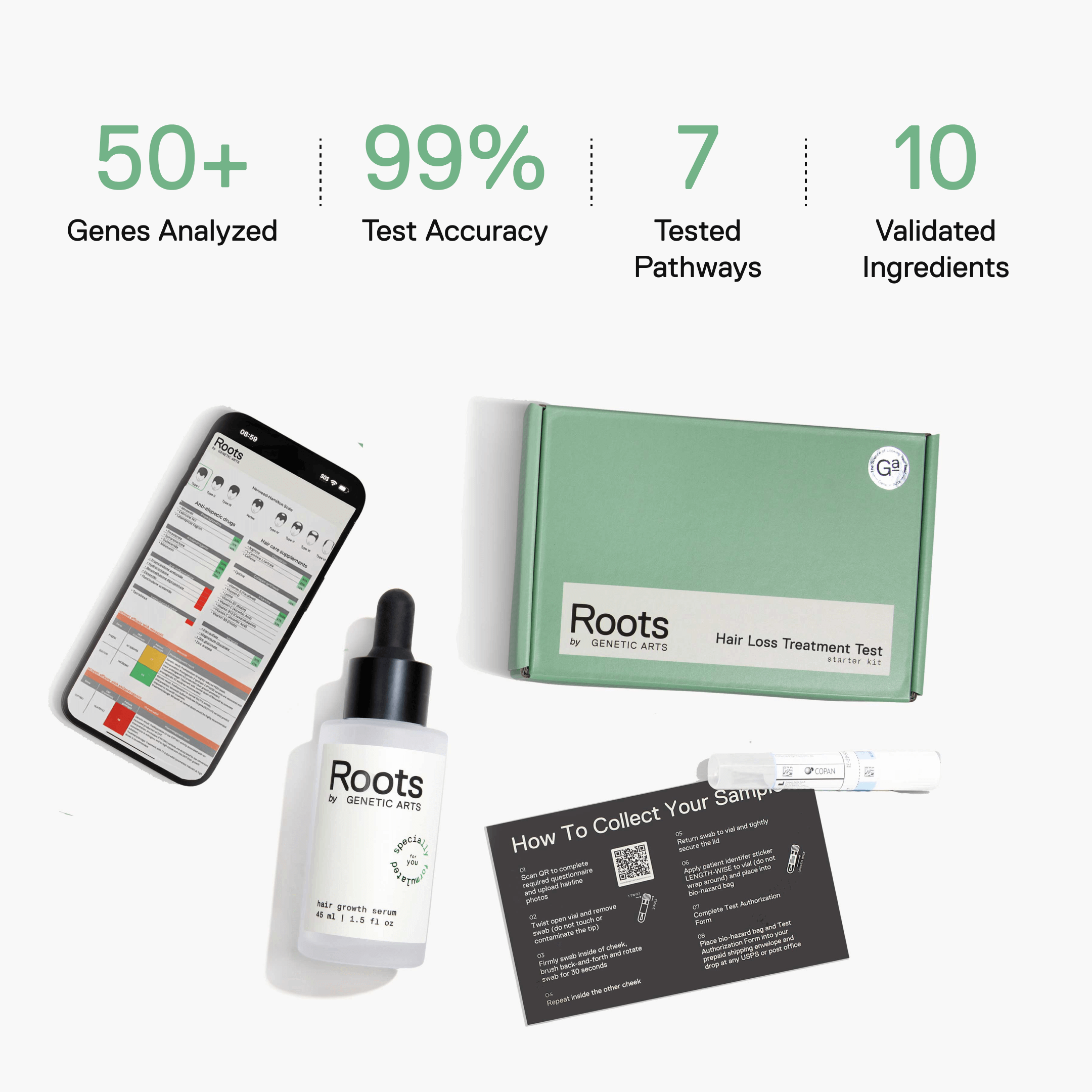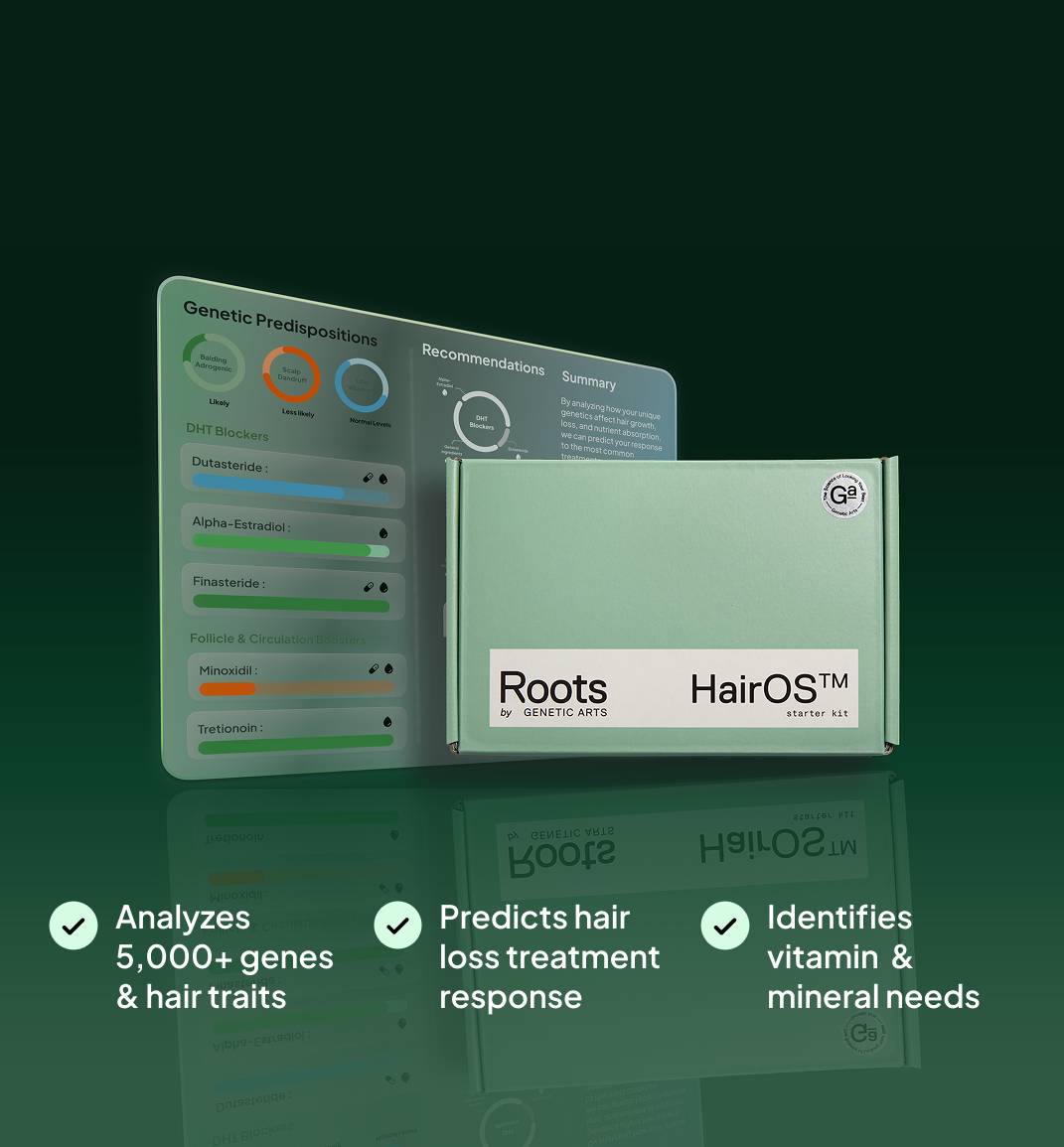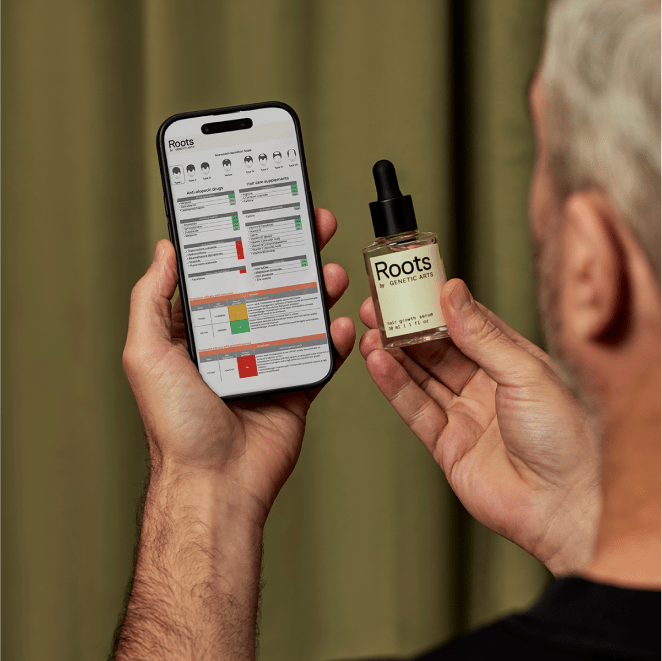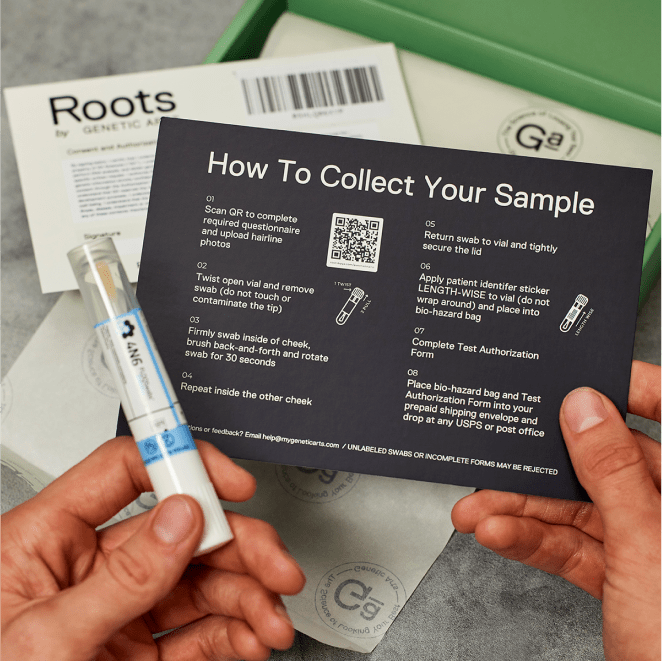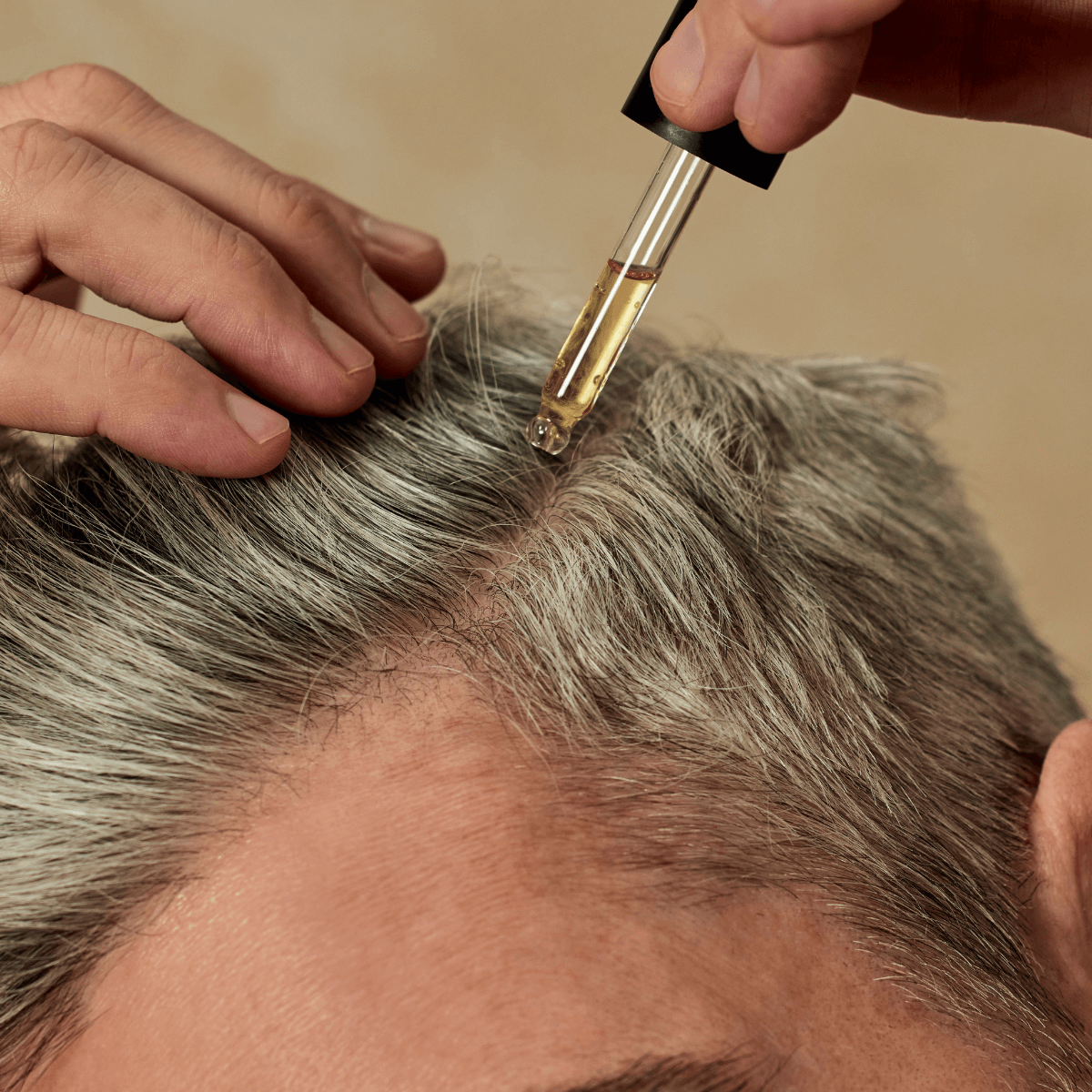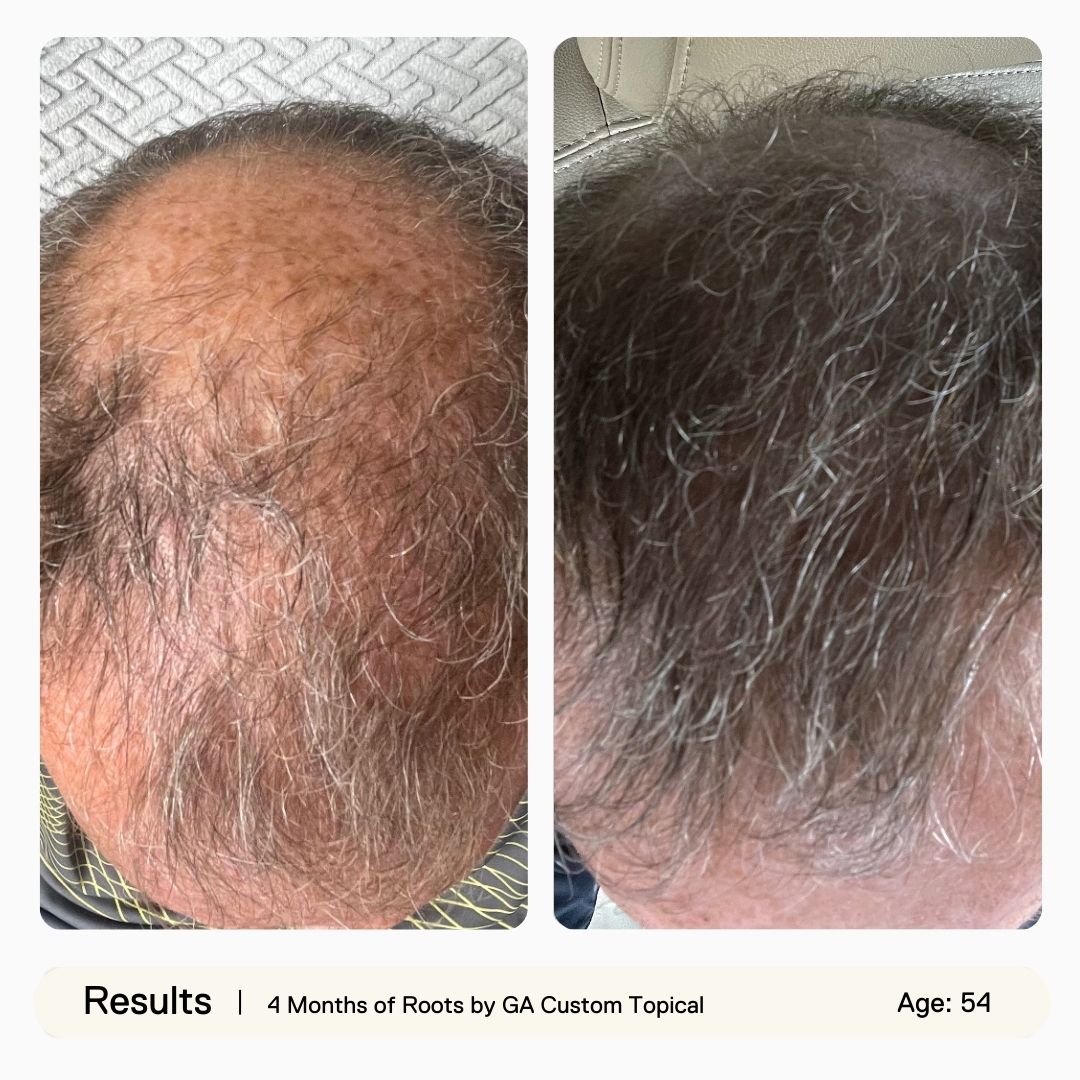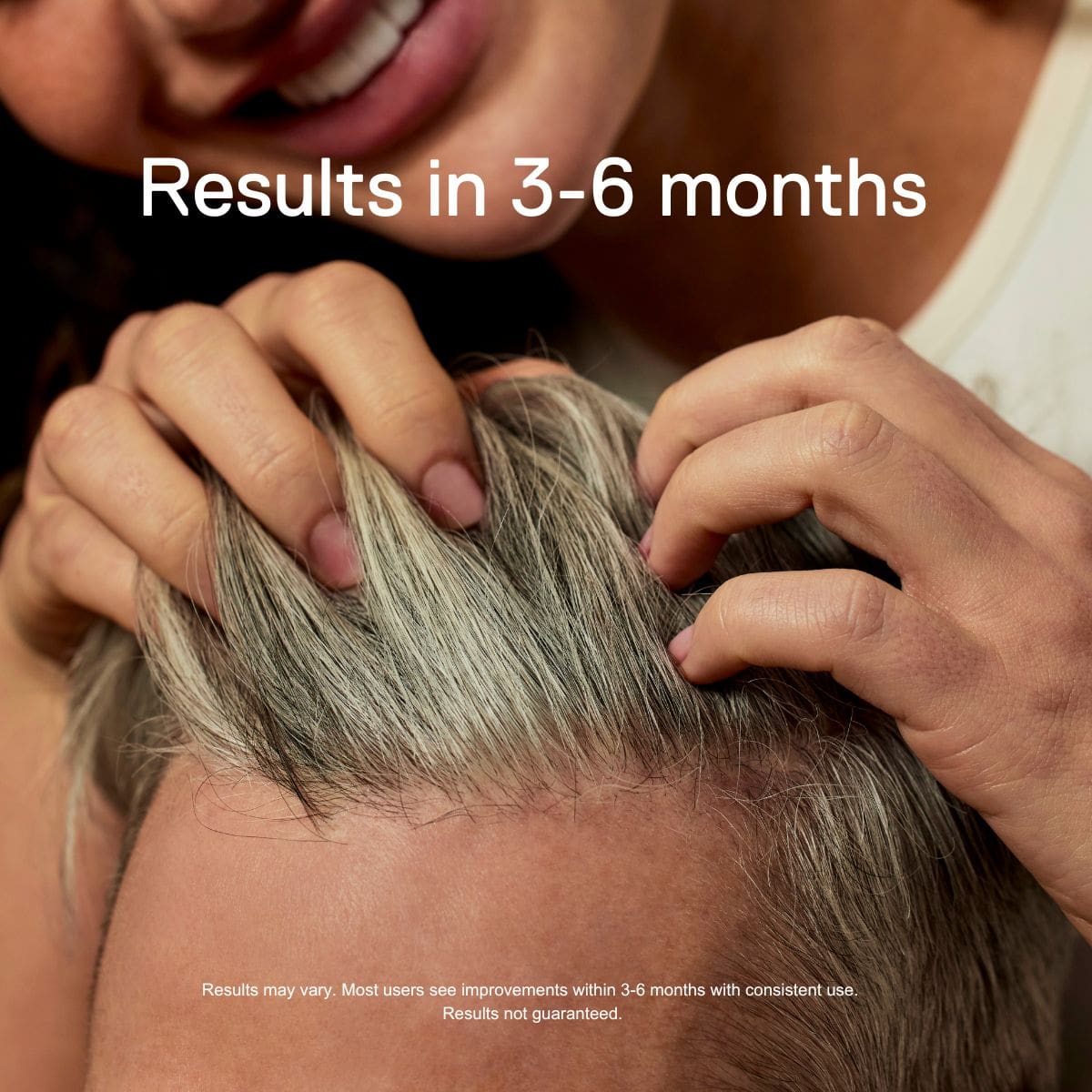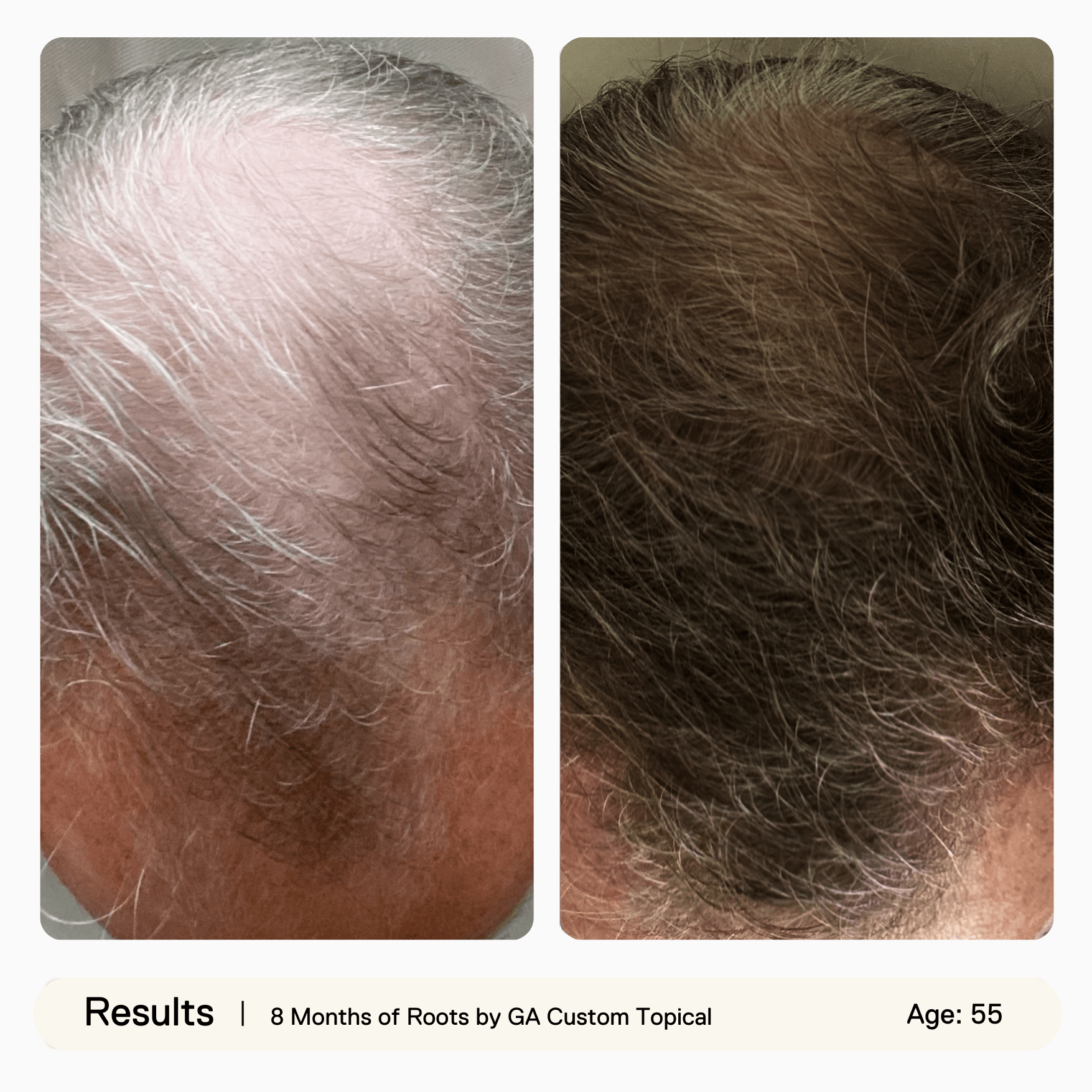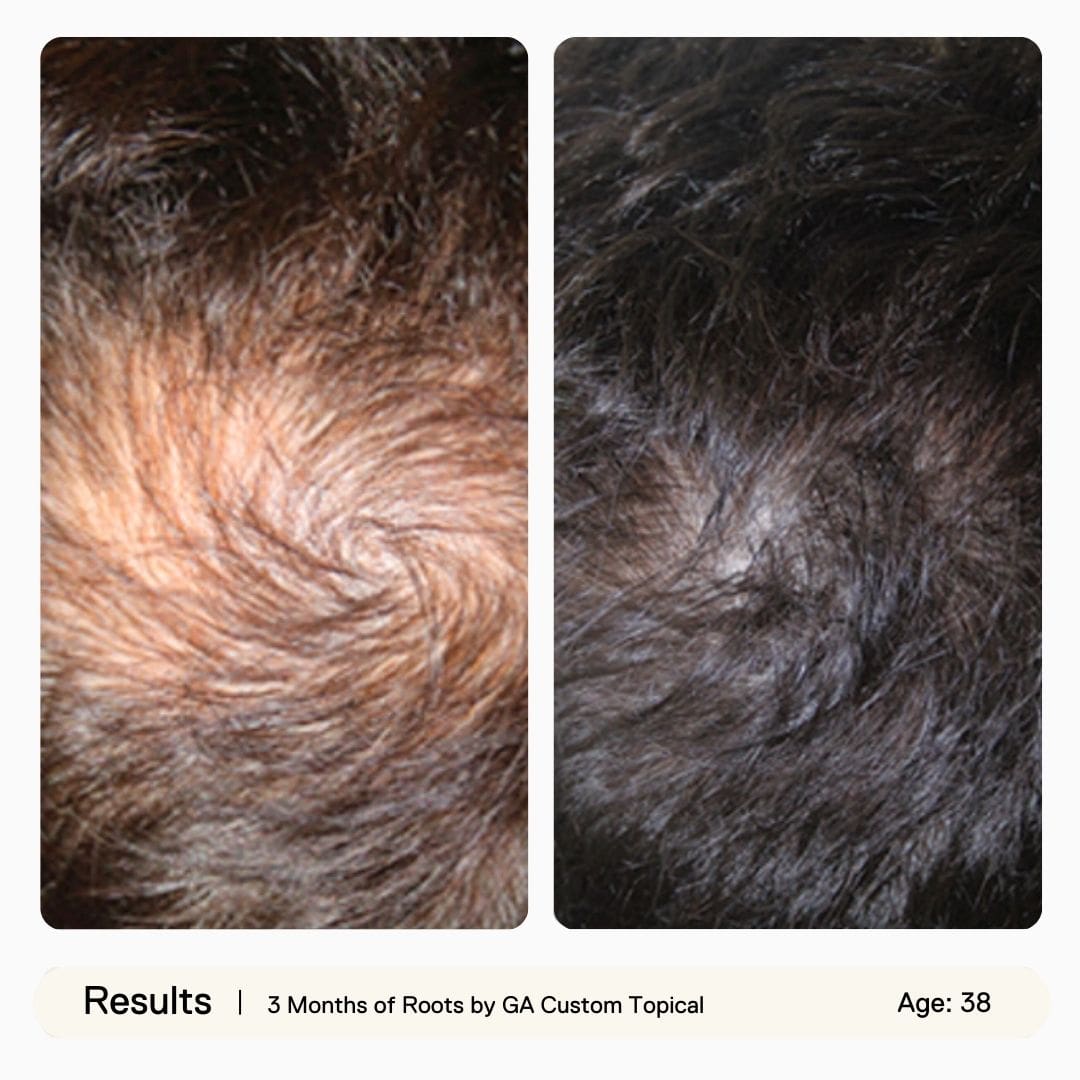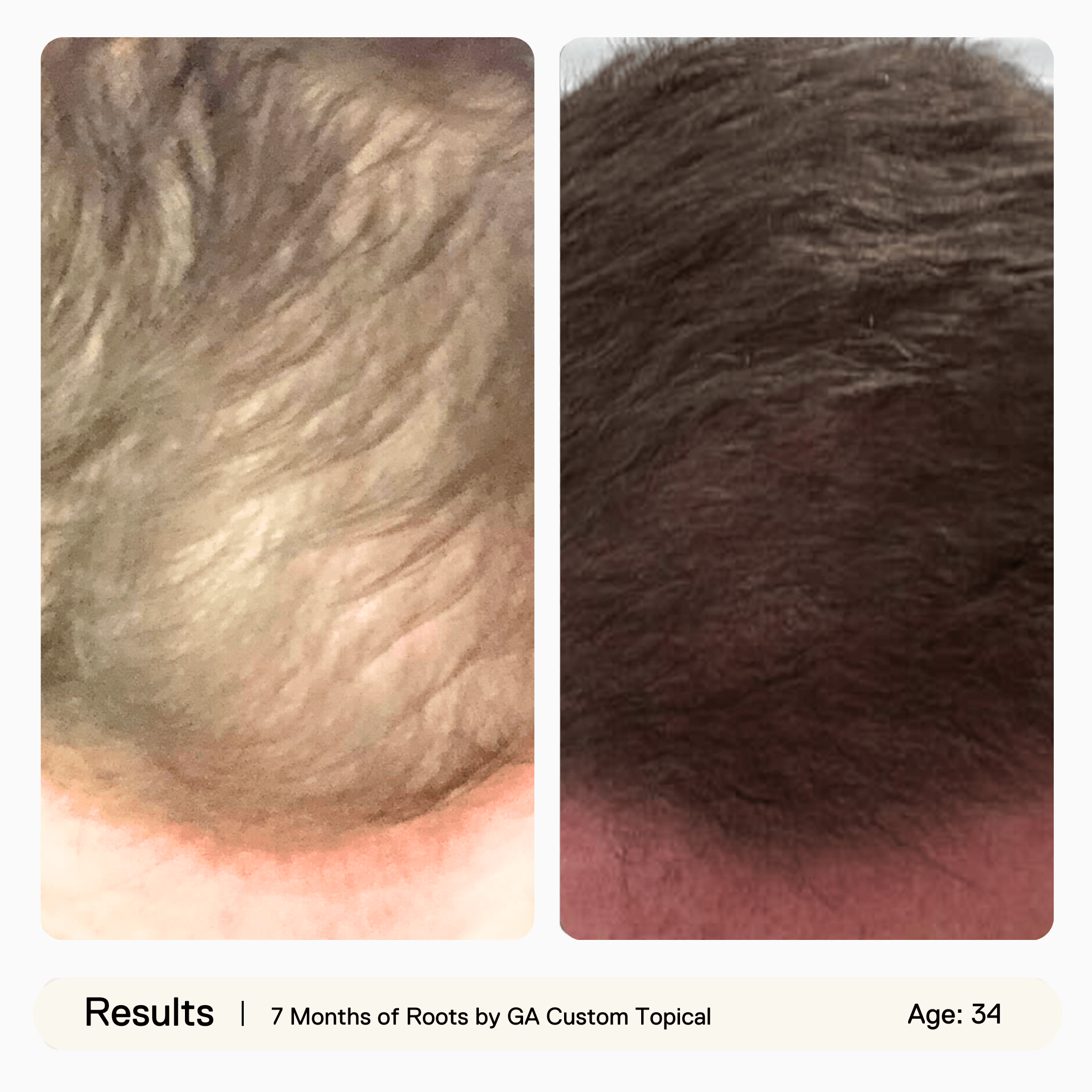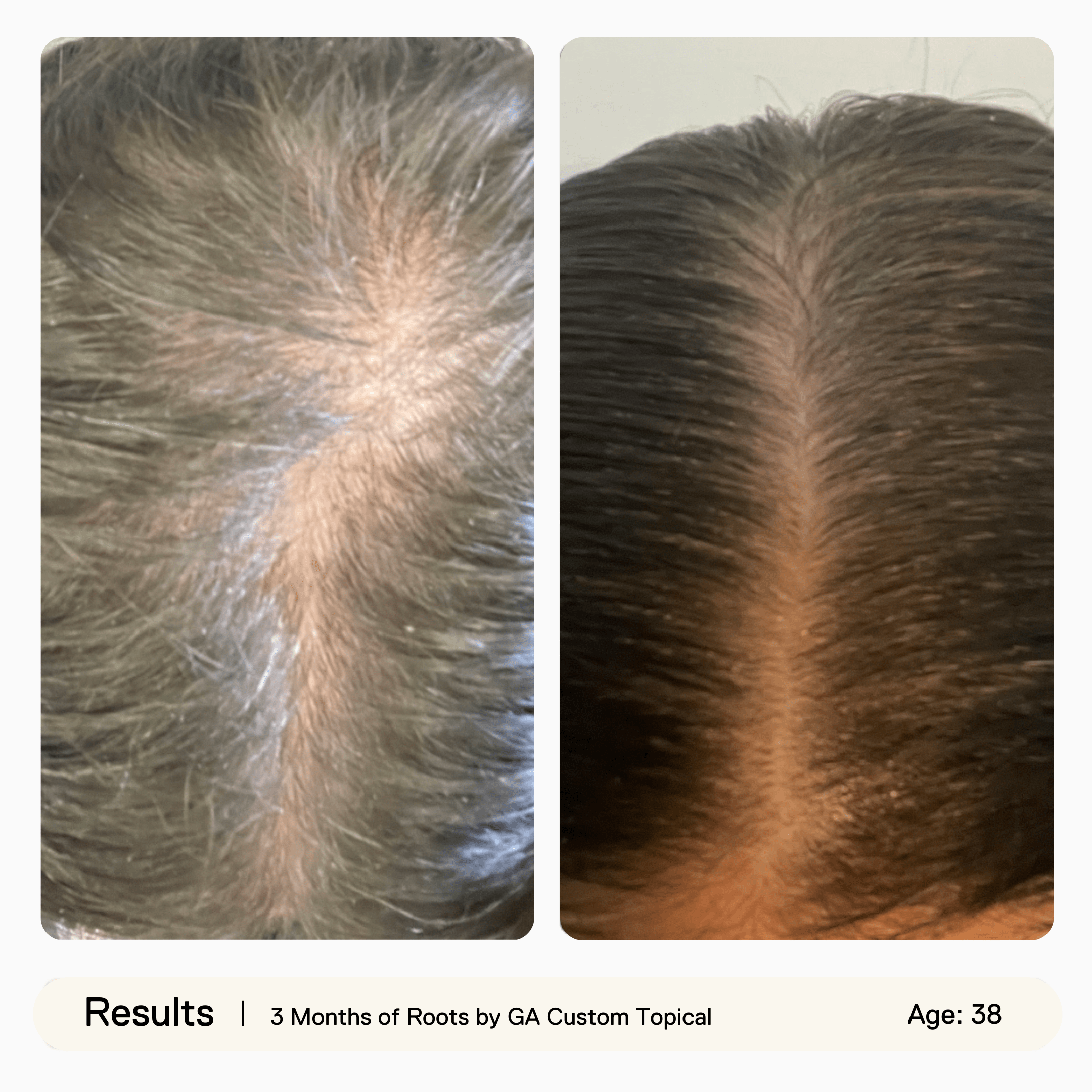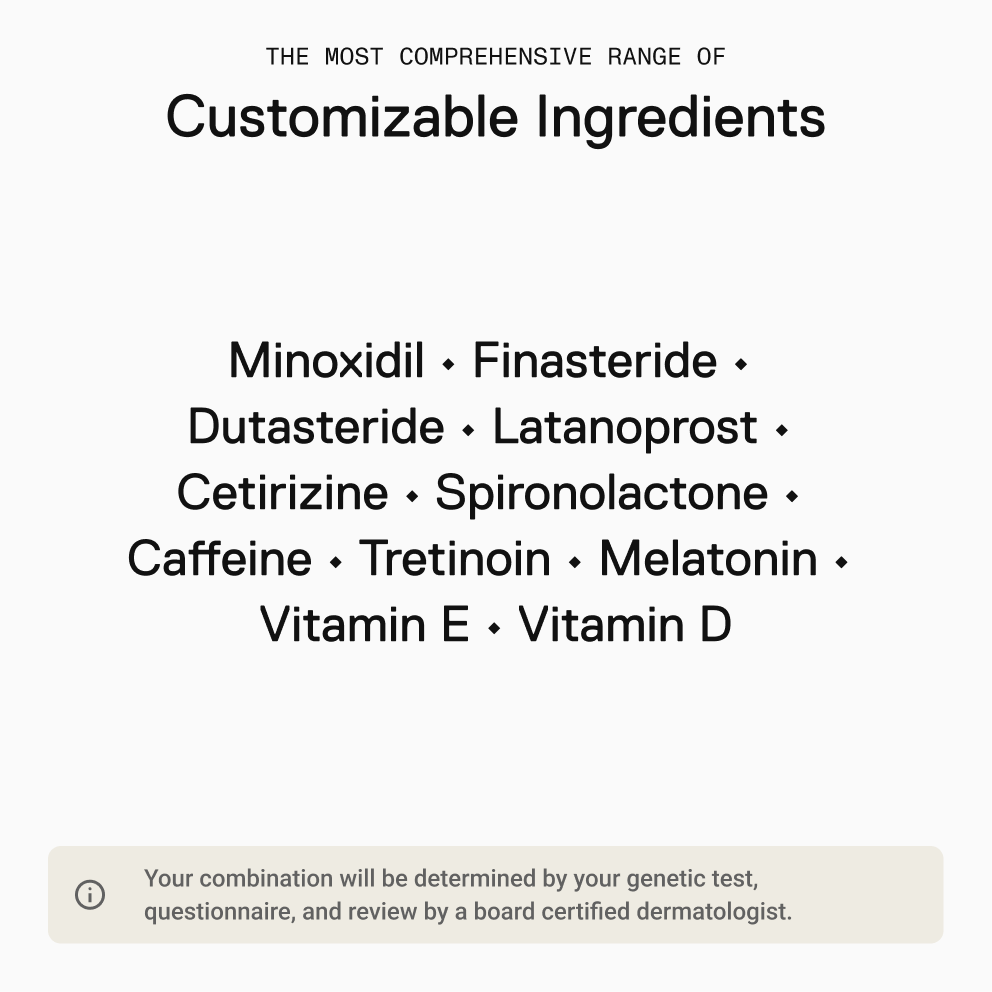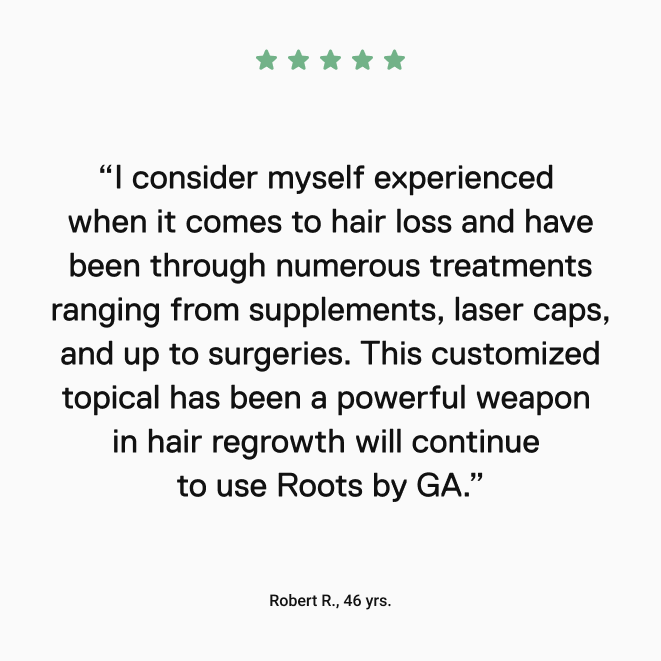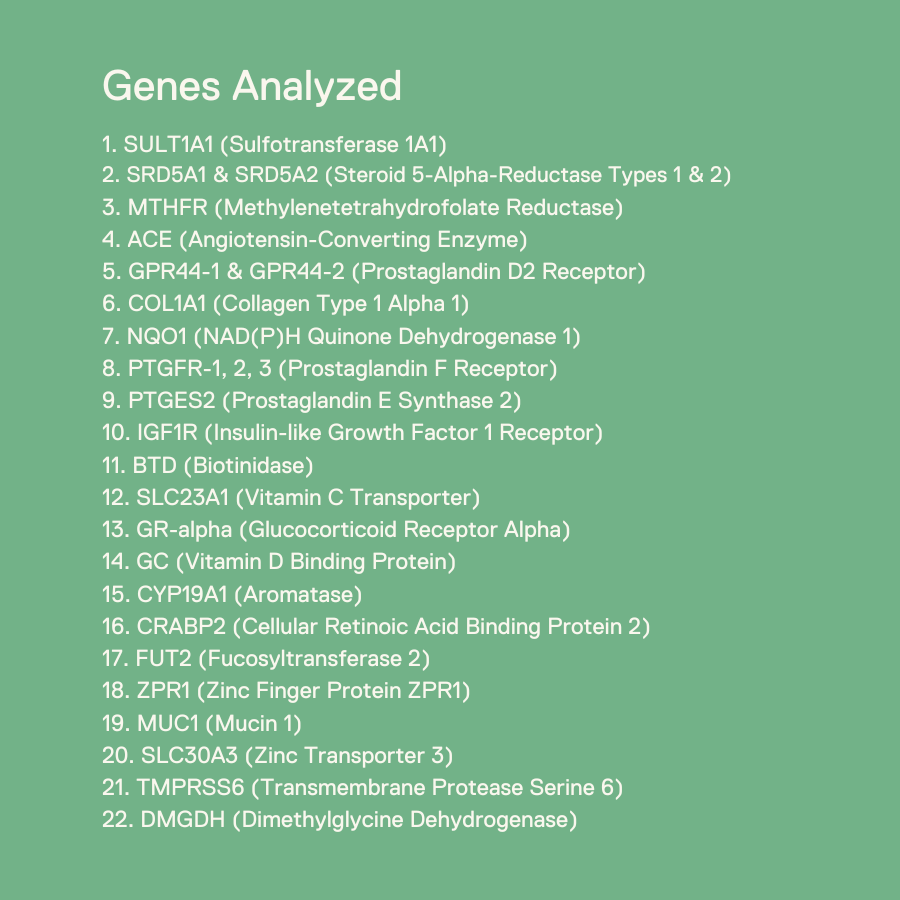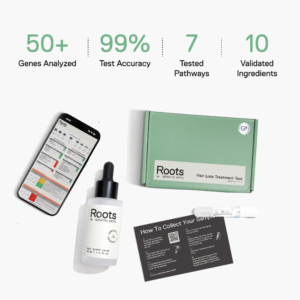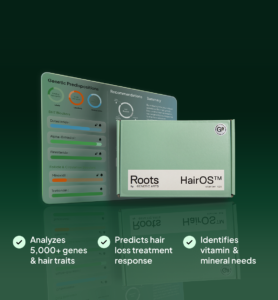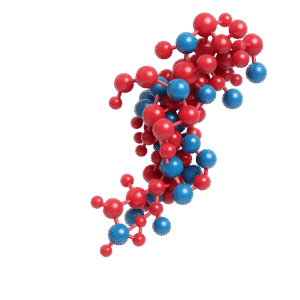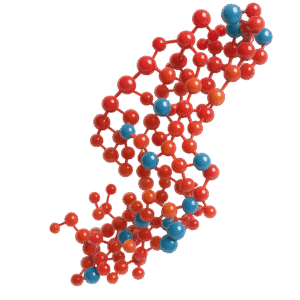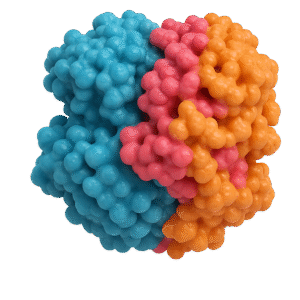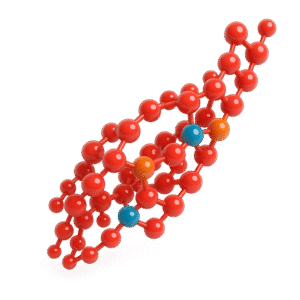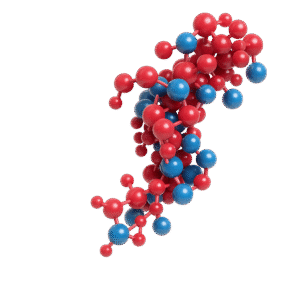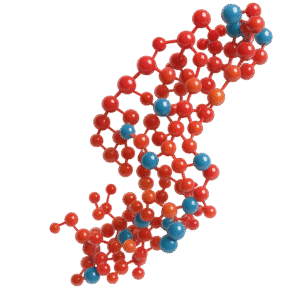HairOS™ Precision Growth System
Genetic Test and Custom Topical
HairOS™ Precision Growth System
HairOS™ combines advanced genetic testing with a custom prescription topical – designed specifically for your biology. A quick saliva swab analyzes thousands of genetic markers to predict how you’ll respond to proven hair-growth medications, nutrients, and actives. Your results are then used by our medical team to formulate a personalized topical treatment, delivered to you.
- Personalized by Your DNA – No off-the-shelf formulas
- Doctor-Designed – Dermatologist-approved treatment
- Clinically Matched Ingredients – Evidence-based, never trendy
- White-Glove Care – Human support when you need it
- Fast Results – Plan ready in 10 days
- Proven Outcomes – Results in 3–6 months*
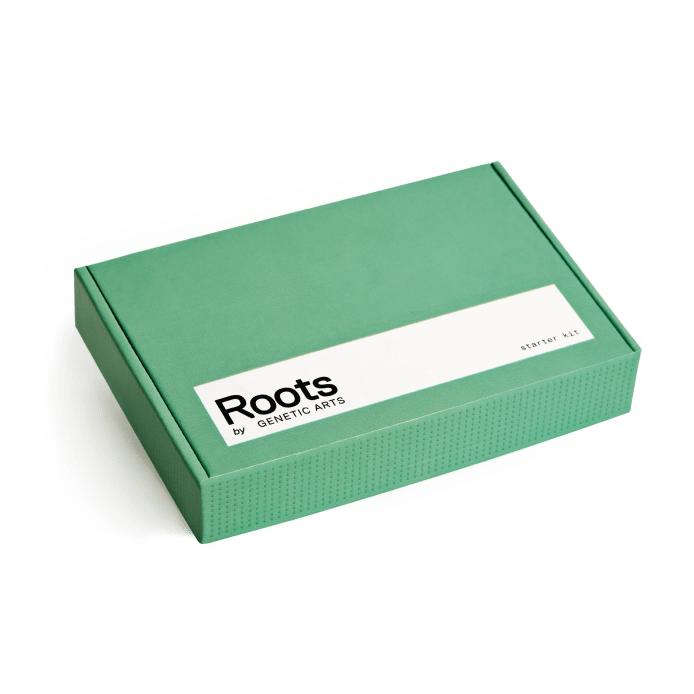
HairOS Test
Health and Hair Loss Insights
One time purchase
One time purchase
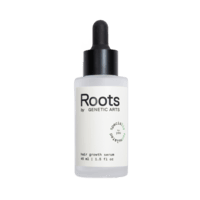
Custom Topical
Hair growth based on your biology
first monththen $98/mo
first monththen $98/mo
- Personalized by Your DNA – No off-the-shelf formulas
- Doctor-Designed – Dermatologist-approved treatment
- Clinically Matched Ingredients – Evidence-based, never trendy
- White-Glove Care – Human support when you need it
- Fast Results – Plan ready in 10 days
- Proven Outcomes – Results in 3–6 months*
Get Answers to Your Hair Loss Questions
HairOS decodes your hair genetics.
By analyzing how your unique genetics affect hair growth, loss, and nutrient absorption, we can predict your response to the most common treatments — and guide you toward the ones that actually work for you.
Discover My Hair Genetics
Comprehensive Hair Genetics
Analysis Report
Detailed genetic insights for personalized hair health optimization
GENETIC
PREDISPOSITIONS
- Hair Loss
- Hair Thickness
- Hair Graying
- Dandruff
- Alopecia Areata
NUTRIENT
PROCESSING ANALYSIS
- Essential Vitamins
- Critical Minerals
- Additional Nutrients
TREATMENT
RESPONSE PREDICTION
- DHT Blockers
- Follicle & Circulation Boosters
- Supportive Treatments
PERSONALIZED
RECOMMENDATIONS
- Treatment Regimen
- Lifestyle Optimization
- Supportive Treatments
Comprehensive Hair Genetics
Analysis Report
Detailed genetic insights for personalized hair health optimization
Results for thousands of customers
Whatever your hair growth needs, we’ll create a custom
topical that delivers real results.
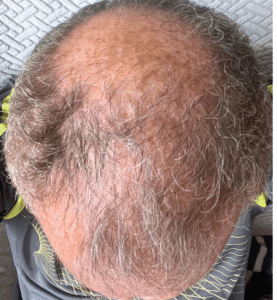 Before
Before
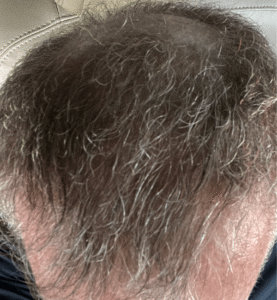 After
After
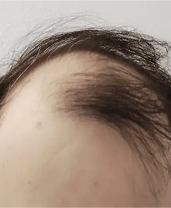 Before
Before
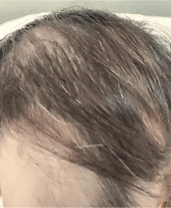 After
After
5 Months of Roots Topical
“I’m shocked how well this is working. 5 months for me and my hair is TWICE! as thick as it was.”
 Before
Before
 After
After
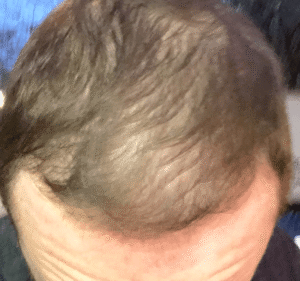 Before
Before
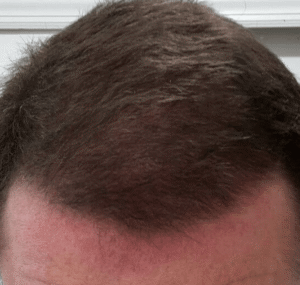 After
After
 Before
Before
 After
After
How it works
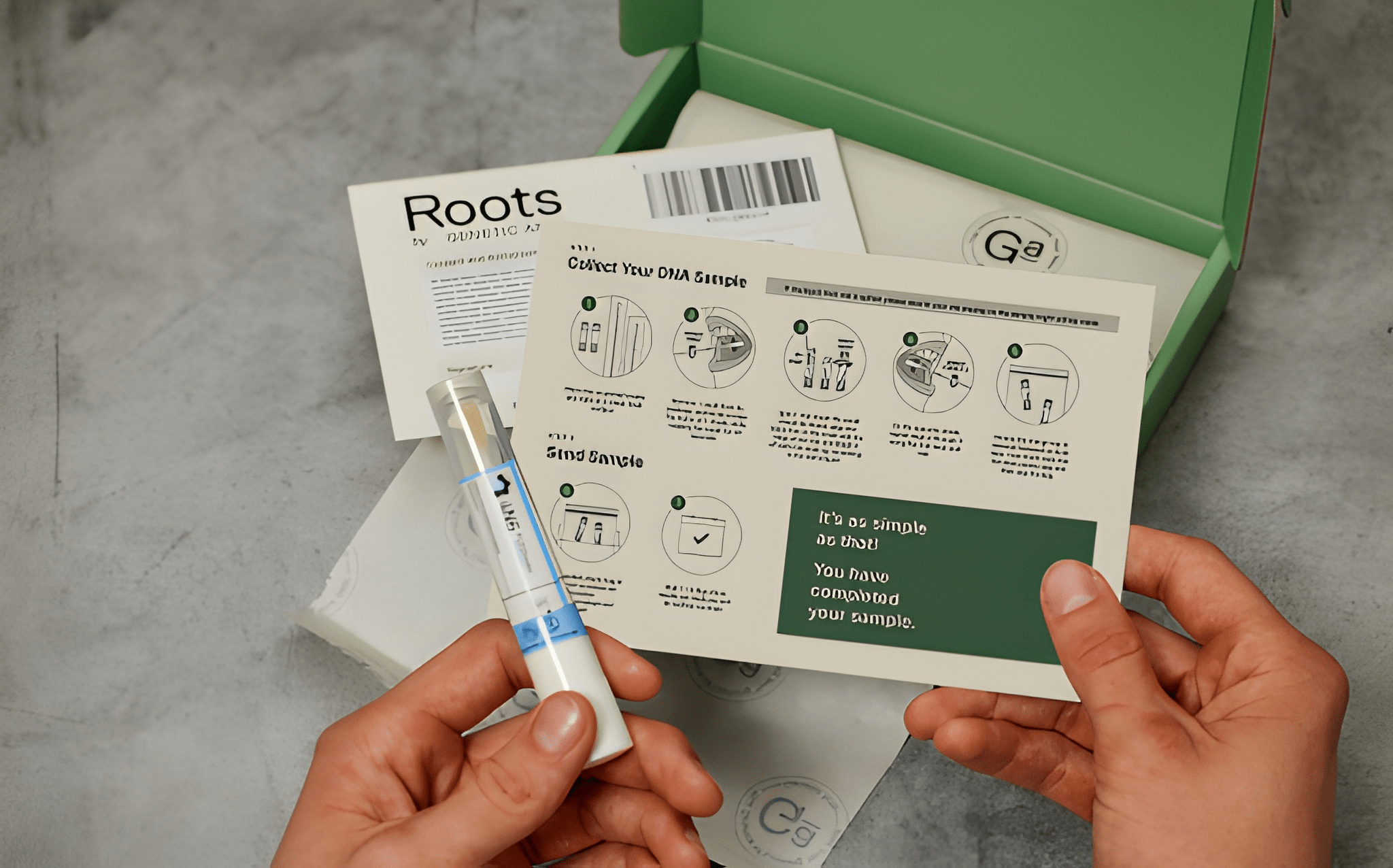

At-home DNA Test
Your at-home DNA kit ships with a simple cheek swab and prepaid return label. Complete the swab and a quick questionnaire about your health history.


Insights delivered
We review your data and email your genetic report within 10 days. Important Note: Not every ingredient in your report will be included in your custom topical.
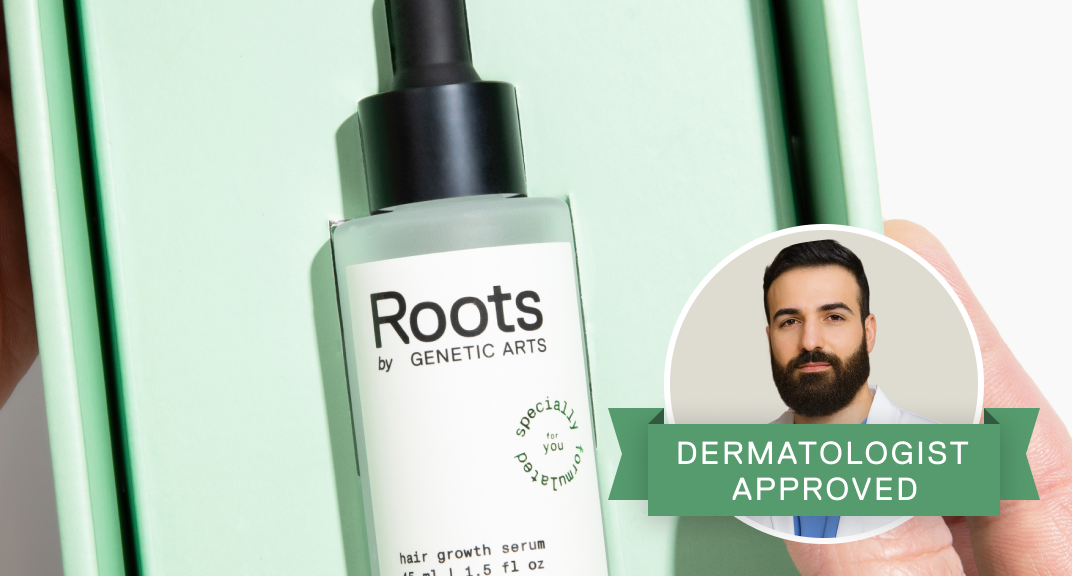

Clinically Prescribed. Personally Delivered.
Get your prescription topical in as little as 6 days. We automatically ship a 45ml refill every 30 days. Pause, reschedule, or cancel anytime.
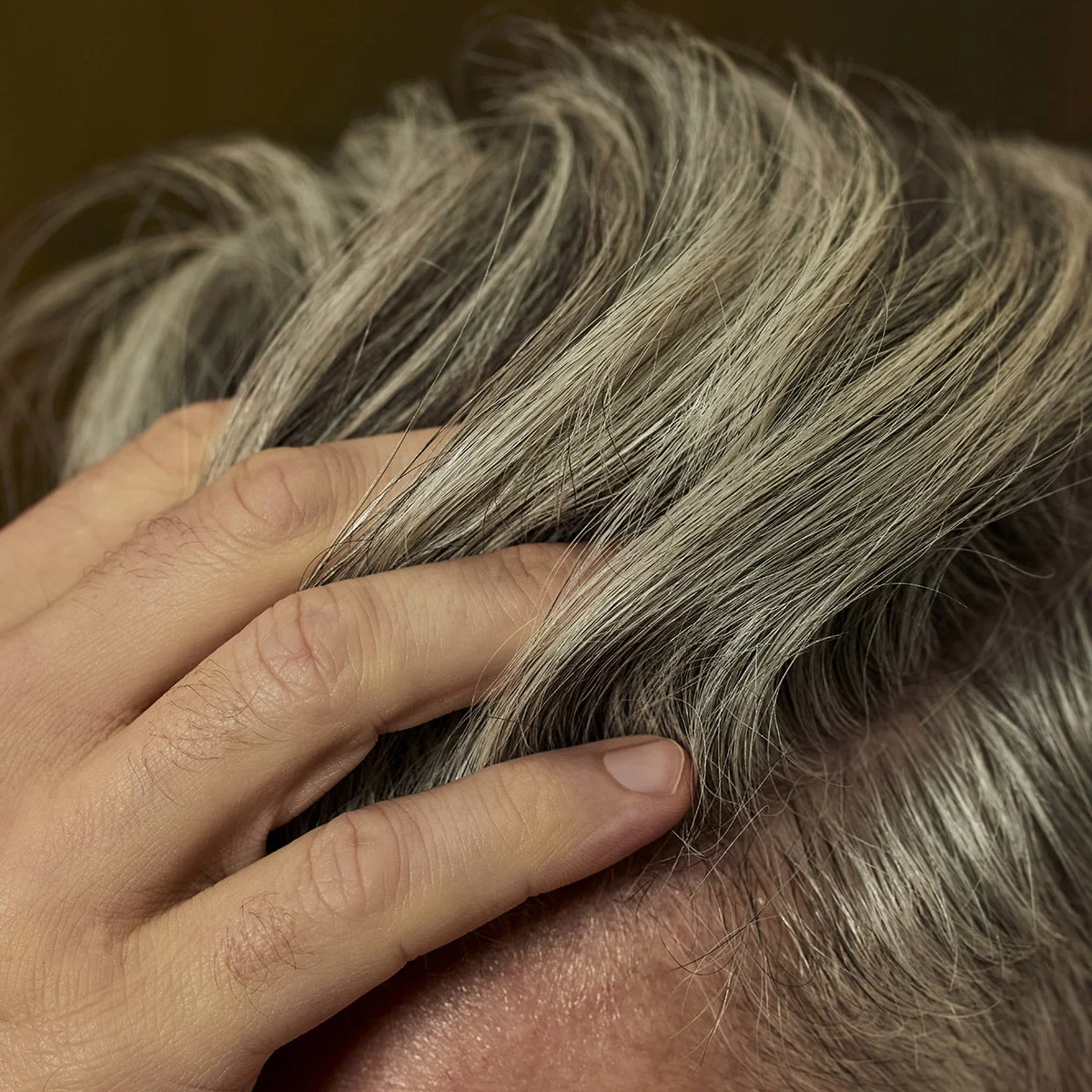

Results 3-6 Months*
After a 3-6 months of consistent use, many customers can begin to notice improvements in hair loss and varying levels regrowth.*
Ingredients for growth
Our custom treatments combine proven prescription hair loss treatments and other effective clinically validated ingredients to achieve the best results.
Minoxidil
Promotes growth in hair follicles during the anagen phase.
Latanoprost
Extends the growth phase of the hair cycle, thereby increasing the density, thickness, and pigmentation of hair follicles.
Finasteride
Stops hair loss by targeting the enzyme that converts testosterone to DHT.
Melatonin
May reduce hair loss and boost regrowth by extending the growth phase, easing oxidative stress, and supporting scalp health.
Caffeine
Stimulates blood flow to the scalp, supporting follicle health and especially the hair growth phase.
Dutasteride
Inhibits the production of the Dihydrotestosterone (DHT) hormone that causes hair loss.
Spironolactone
Slows androgen production, decreasing testosterone. May act as combined or solo therapy for androgenic alopecia.
Tretinoin
Supports healthy skin cell turnover and boosts Minoxidil absorption for better hair growth.
Vitamin D
Promotes healthy skin, hair, and the creation of new hair follicles.
Cetirizine
May boost hair density and thickness by targeting the prostaglandin pathway, especially in patients with androgenic alopecia.
Who HairOS™ Is For
Early Signs of Thinning
Noticing shedding, a receding hairline, or crown thinning.
Tired of Guessing Treatments
For anyone who wants clear guidance on what will actually work.
Want a Personalized Plan
Treatment recommendations tailored to your genetics.
Want to Avoid Trial and Error
Skip wasting months on products that won’t help.
Exploring Prescription Care
Ideal if considering medicated or dermatologist-guided solutions.
Curious About Genetic Impact
See if you’re genetically prone to common hair or scalp issues.
Early Signs of Thinning
Noticing shedding, a receding hairline, or crown thinning.
Tired of Guessing Treatments
For anyone who wants clear guidance on what will actually work.
Want a Personalized Plan
Treatment recommendations tailored to your genetics.
Want to Avoid Trial and Error
Skip wasting months on products that won’t help.
Exploring Prescription Care
Ideal if considering medicated or dermatologist-guided solutions.
Curious About Genetic Impact
See if you’re genetically prone to common hair or scalp issues.
This isn’t guesswork — it’s science.
Our DNA test is built on more than 42 peer-reviewed studies and over 100 scientific citations. From understanding minoxidil response genes to mapping DHT pathway sensitivity, every recommendation is rooted in validated research.
That means your plan is more than just personalized — it’s evidence-based.
“DNA-guided treatment improves response rates by matching patients to the right therapies faster.”
Dr. Omeed Ahadiat
Board-Certified Dermatologist
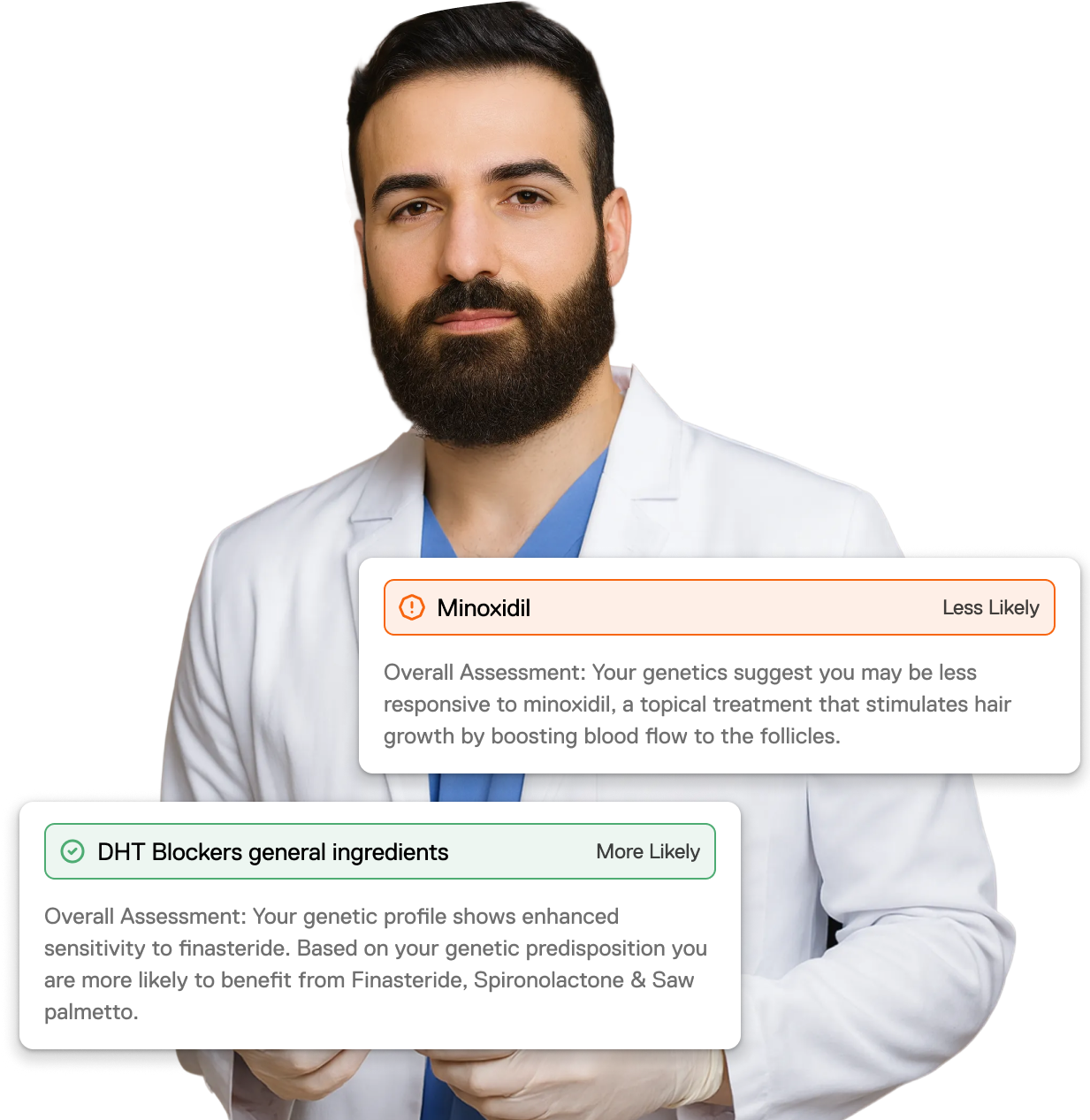
What We Test For And Why
Your genetic makeup and hormones play a key role in your hair loss and how your body responds to hair loss treatments. We analyze 15,000+ genetic variants to cut the guesswork and match you with the therapies your body will respond to.
FAQs
Your Questions, Answered
Here are some questions we usually get about Roots by GA. If you would like yours answered, please contact us.
Still have questions?
Email us at help@rootsbyga.com
A genetic test provides valuable insights into how your unique genetic makeup may influence hair loss and your response to different treatments. By analyzing over 20 specific genes and biomarkers related to hair health, we can understand underlying factors contributing to hair thinning or loss. This allows us to personalize your treatment with ingredients that are more likely to work effectively for you. With a tailored approach, you’re not only improving your chances of seeing results but also minimizing exposure to ingredients that may be less beneficial for your hair type and genetic profile.
